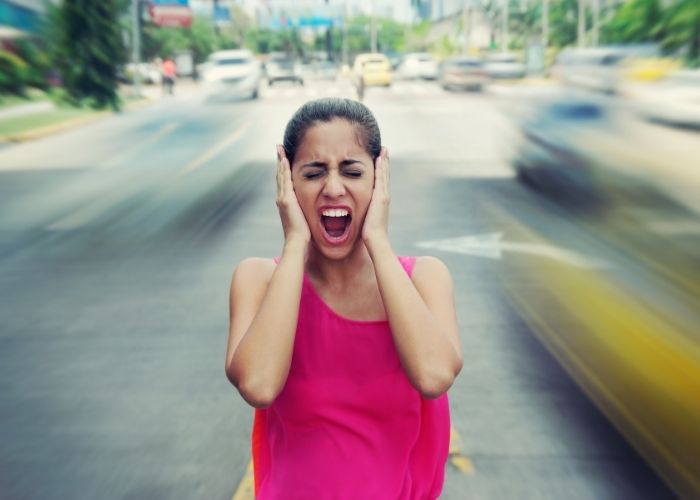MADRID – Making too much noise is punished in several ways in Spain. The police can issue fines ranging from €90-600 for motorbikes, mopeds, and cars that are too noisy. The Spanish traffic service DGT plans to install sound radars.
These radars pick up the sound your car produces. And are therefore able to determine how many decibels your vehicle produces while circulating in traffic. Consequently, should that exceed the permitted limit, you could be fined from 2022 onwards. The Spanish traffic service DGT plans to install the noise radars in the autumn.
Furthermore, this type of noise radar has been tested in other European countries for more than a year. In France, test radars have already been installed in Paris, Nice, and Lyon. And as such, the real surveillance work can start this autumn. From then, for example, people can be fined for driving with a rejected exhaust pipe or with a souped-up moped.
How do sound radars work?
These devices have a 360-degree camera and several acoustic antennas that pick up noise via the microphones that have to measure the ambient decibel every tenth of a second. These revolutionary radars are able to distinguish sounds and detect where they come from or who is emitting them.
Therefore, if the radar senses your car or motorcycle has exceeded the maximum noise permitted, the system will take a picture of the license plate, and issue the corresponding fine.
Sanctions
The aim of this technology is to further reduce noise pollution. Therefore, it will not just focus on motorcycles and cars circulating with the modified exhaust pipe. But it will also take into account those in sport mode exceeding the number of decibels, especially at night.
Noise pollution causes premature deaths
According to a study by the European Environment Agency, with data from the WHO, noise pollution affects 113 million people in the EU and causes up to 12,000 premature deaths each year. The European standard states that all sounds with an intensity of more than 55 decibels during the day and 50 decibels at night are polluting.
In Spain, maximum noise limits are set by each individual municipality, which fines the driver or person who exceeds them if necessary. In that sense, it can also be a parked car with the music on very loud. For example, Madrid penalises exceeding the legal maximum of 87 decibels by a maximum of 4 decibels with €90. Or €300 for exceeding by a maximum of 7 decibels and €600 for exceeding by more than 7 decibels and immobilisation.
What does the law say?
With regard to noise, the European standard states all noise with an intensity of more than 55 decibels (dB) during the day and 50 dB at night is polluting. The following examples give an idea:
10 dB is the sound level of human breathing
When you enter a library, the noise level is usually around 20 dB
A street with little traffic produces a level of 30 dB
The sound level of a conversation is 40 dB
50 dB is the tone achieved by a group of people speaking
A road with a lot of traffic produces a noise level of 90 dB


